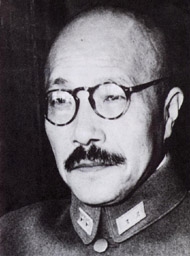Drivers behind the use of force
Chapter One of If China Attacks Taiwan is written by the book’s editor, Steve Tsang. In this introductory chapter, he integrates and summarizes the chapters which follow. Here’s a few points he made that I thought were interesting:
1. Like all dictatorships, the Chinese leadership suffers from a lack of negative feedback. As Tsang says, "[China’s] assessments of outside reactions to China’s ‘righteous’ use of force against Taiwan are colored…[by the fact that its] diplomats are required not to contradict senior leaders even when reporting views they have collected and collated in their diplomatic missions."
So when the Chinese leadership likens itself to the North in the American Civil War, it’s not being informed that foreigners aren’t buying the analogy. Pretty bad news if Hu Jintao* thinks the world will view him as Lincolnesque if he launches a war to "hold the Union together" and free the Taiwanese "slaves".
2. Many in the Chinese military don’t seem to have a clue about the American psyche, which is why they entertain the notion that Americans would seek a quick negotiated settlement if one of their aircraft carriers is sunk. Tsang correctly points out that the Japanese held similar thoughts prior to Pearl Harbor.
3. While it was a British colony, Hong Kong was spared from sanctions whenever they were levied against China, but in the future it won’t be so lucky. Which means that the two greatest engines of China’s growth, Taiwan and Hong Kong, would have their economies crippled in the event of war – at a time when China itself would fall under Western sanctions. A triple whammy.
Now for a few gripes and quibbles. A few sentences didn’t sit well with me:
"[The Taiwanese government] needs to take the China threat very seriously….[It should] send out signals, not only through policy statements but also by its deeds, that it will not cross Beijing’s albeit not clearly defined bottom line."
At this point, I’d like to point out that one of Beijing’s bottom lines is that it will use force against Taiwan if Taiwan is dilatory in coming to the table to discuss terms of its surrender. It’s hard to see how Taiwan could satisfy this particular demand without actually surrendering.
Here’s another objectionable line:
"…it was necessary for George W. Bush…to rebuke publicly President Chen Shui-bian in December 2003, when Chen appeared to embark upon a course that could cause China to resort to force."
First of all, China is an independent moral actor, not a force of nature or a wild dog. Taiwan cannot "cause" it to do anything at all; only China’s leaders can do that. China’s leaders will be the ones responsible for any war of aggression against Taiwan, and the Chinese people themselves will be culpable to the degree that they acquiesce, or even approve.
Secondly and more importantly, Tsang is wrong: the smackdown of Chen was a mistake, and its repercussions are still being felt to this very day. The reason why Chen was dressed down was because he wanted to hold a referendum showing that the Taiwanese were united in their desire for China to remove its missiles and renounce the use of force against Taiwan.
Tough questions, those.
Should China remove its missiles pointed at Taiwan? Yes or No?
Should China renounce the use of force against Taiwan? Yes or No?
China got wind of this and claimed it was all nothing more than a rotten, low-down provocation. Asking these questions of the Taiwanese people was "a course that could cause China to resort to force," China blustered.
You got that? In the Merry Old Land of Beijing, merely asking China NOT to use force is justification for China TO use force.
Taiwan (cowering on the playground): Please don’t hit me.
China: Now you’re asking for it! Saying that just makes me want to hit you even more!
China’s hyperventilating soon had the right effect. The Bush administration got frightened by the tantrum, and denounced the referendum. It was still held, although Chen watered down the questions a bit. Peace prevailed, and more than a few members of the administration undoubtedly gave themselves a pat on the back for maintaining the status quo.
Ultimately though, the status quo was badly damaged. The Taiwanese were rattled by the apparent loss of American support, and handed a legislative majority to the KMT and its allies. KMT leaders then started to get awfully chummy with the Communist Party of China, and incredibly, even began to talk dreamily of a future Taiwanese "neutrality" vis-a-vis China & America. What’s more, they proceeded to block the purchase of weapons Bush had authorized in 2001 and that they themselves had requested in the late ’90s.
In short, having won their majority with the Bush administration’s help, the KMT and its allies showed their gratitude by stabbing it in the back. While it may be arguable that preventing a "provocative" referendum helped to maintain the peace, the balancing act unquestionably strengthened the position of capitulationist parties in Taiwan. Taiwan was weakened, militarily and psychologically.
So a phony provocation was replaced by a real one. Real, because as Ronald Reagan observed, weakness too, is provocative.
* My spell-checker highlighted "Jintao" and asked if I meant "junta" instead. Just one of life’s funny coincidences.
